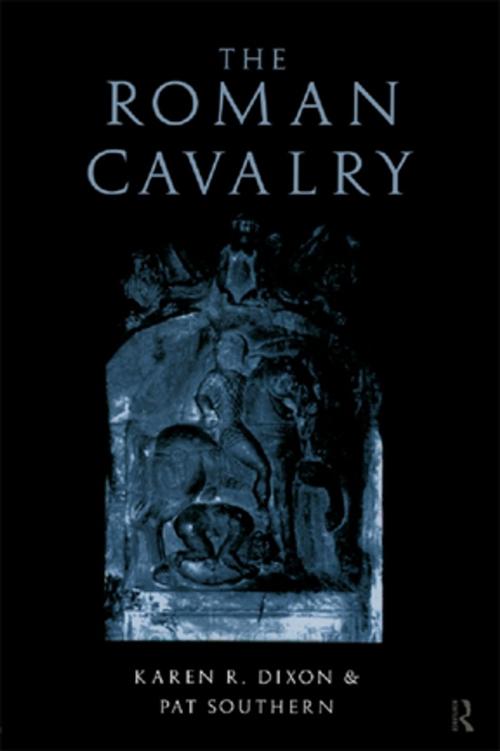| Author: | Karen R. Dixon, Pat Southern | ISBN: | 9781135114077 |
| Publisher: | Taylor and Francis | Publication: | January 11, 2013 |
| Imprint: | Routledge | Language: | English |
| Author: | Karen R. Dixon, Pat Southern |
| ISBN: | 9781135114077 |
| Publisher: | Taylor and Francis |
| Publication: | January 11, 2013 |
| Imprint: | Routledge |
| Language: | English |
The cavalry was a vital part of the army of Rome and it played a significant role in the expansion and success of the Roman Empire. Karen R. Dixon and Pat Southern describe the origins of the mounted units of the Roman army and trace their development from temporary allied troops to the regular alae and cohorts. They have drawn together evidence from a wide variety of sources: archaeological, epigraphic and literary, as well as comparing ancient testimony with more recent experience of the use of cavalry.
The book covers the subject from the perspective of both the men and the horses. How were the horses selected and disposed of; how were they trained, stabled and fed? How were the men recruited, organized and equipped; and what were the conditions of service for a Roman cavalryman? The cavalry had to be employed in peacetime and this is discussed as well as its role in war.
The image of the Roman cavalry is often one of excitement and glory but the authors are aware that a true picture must not overlook the routine and the suffering. This book provides a comprehensive account of the Roman cavalry and the current state of knowledge concerning it. The wide selection of illustrations includes original drawings by Karen R. Dixon.
The cavalry was a vital part of the army of Rome and it played a significant role in the expansion and success of the Roman Empire. Karen R. Dixon and Pat Southern describe the origins of the mounted units of the Roman army and trace their development from temporary allied troops to the regular alae and cohorts. They have drawn together evidence from a wide variety of sources: archaeological, epigraphic and literary, as well as comparing ancient testimony with more recent experience of the use of cavalry.
The book covers the subject from the perspective of both the men and the horses. How were the horses selected and disposed of; how were they trained, stabled and fed? How were the men recruited, organized and equipped; and what were the conditions of service for a Roman cavalryman? The cavalry had to be employed in peacetime and this is discussed as well as its role in war.
The image of the Roman cavalry is often one of excitement and glory but the authors are aware that a true picture must not overlook the routine and the suffering. This book provides a comprehensive account of the Roman cavalry and the current state of knowledge concerning it. The wide selection of illustrations includes original drawings by Karen R. Dixon.















